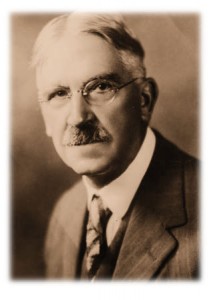 Putting Assessment in Context
Putting Assessment in Context
It is at the conclusion of the semester that teachers are asked to make some of their most important decisions of the year. After months of creating engaging learning activities and working with students to provide them with opportunities to demonstrate knowledge of the learning outcomes, teachers must determine not only if the student has been successful in that regard, but also identify a grade which represents their level of achievement.
In most cases, it is a matter of identifying an accurate (albeit subjective) number that reflects where students stand relative to their peers. In others it involves a failing grade and accompanying commentary to justify that assessment. The world of assessment is far from black and white, and teachers often engage in an internal dialogue about what counts and what doesn’t, and wrestle with the how their assessment of the students’ abilities truly reflects what that student is able to do.
In some instances, the stakes are higher. A failing grade in a particular course can put a students’ graduation at risk. Rightly or wrongly, entrance into some post-secondary institutions is screened on the basis of high school marks. The assessments that teachers make and the grades they assign can cause ripples well beyond the classroom.
The Big Question:
Some jurisdictions recognize a final mark must reflect teachers’ informed professional judgement. Where that is the case, there will be those occasions where one faces a dilemma, best captured in this question:
- Has this student demonstrated a satisfactory understanding of the learning outcomes?
When I pose that question, I prefer to qualify two key elements:
- Has this student demonstrated a satisfactory understanding of the learning outcomes?
Assessment must be considered on a case by case basis. We need personalize student achievement by looking closely at the student whom we are assessing, and putting the learning outcomes in context.
Inspiration from the Past
When confronted with such a task, I take my inspiration from a trusted source. In “How We Think”, John Dewey articulated a number of concepts that resonate across the years. These ideals continue to have relevance and certainly have influenced my own responses.
Dewey writes about context: how a poor performing student may, when confronted with a different set of circumstances may achieve quite well. The point is that our assessment of a student is only relevant within the context of that particular learning environment. It is imperative that this reality is reflected in our assessment. We must know “this student” for this to occur.
Dewey also warns us about preoccupation with external standards. It is paramount that we help students learn how to think. Process, not product, should be our focus. In that sense, our evaluation should reflect more upon the journey toward achieving the “learning outcomes” rather than on whether or not the student ultimately reached the destination.
Teachers have the difficult task of determining pass or fail, or identifying a letter or number that somehow reflects a student’s level of achievement. This can only occur when they have a sound knowledge of the student as a learner and can exercise their professional judgement in assessing achievement of outcomes.
The evaluation of student achievement is an imperfect process and the grades we assign have implications well beyond our schools and classrooms.
Our assessments of students must consider these realities.
